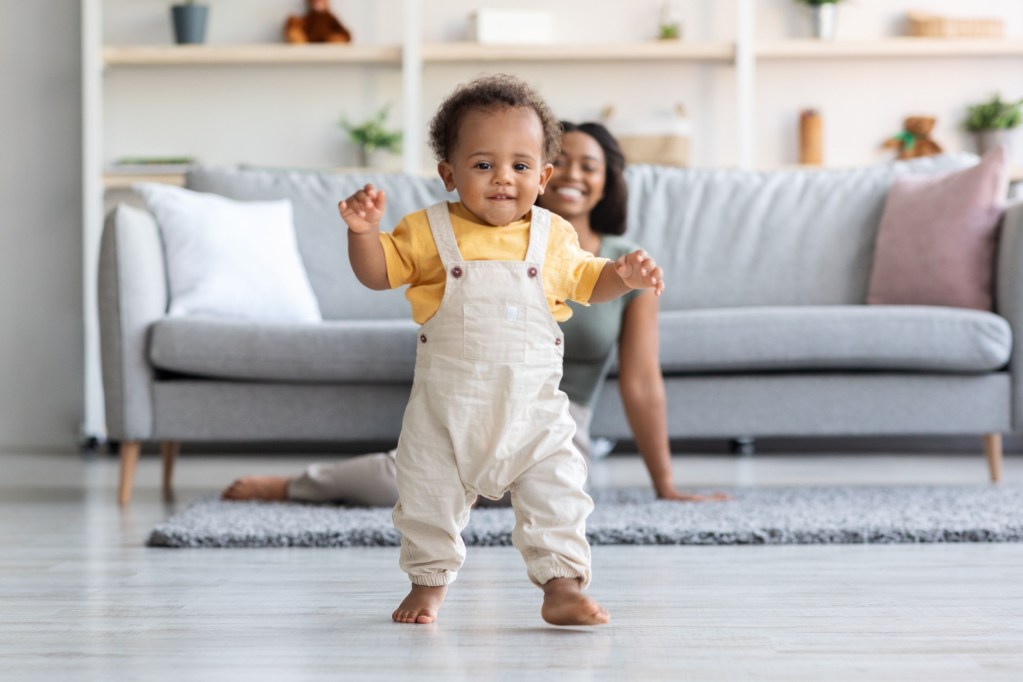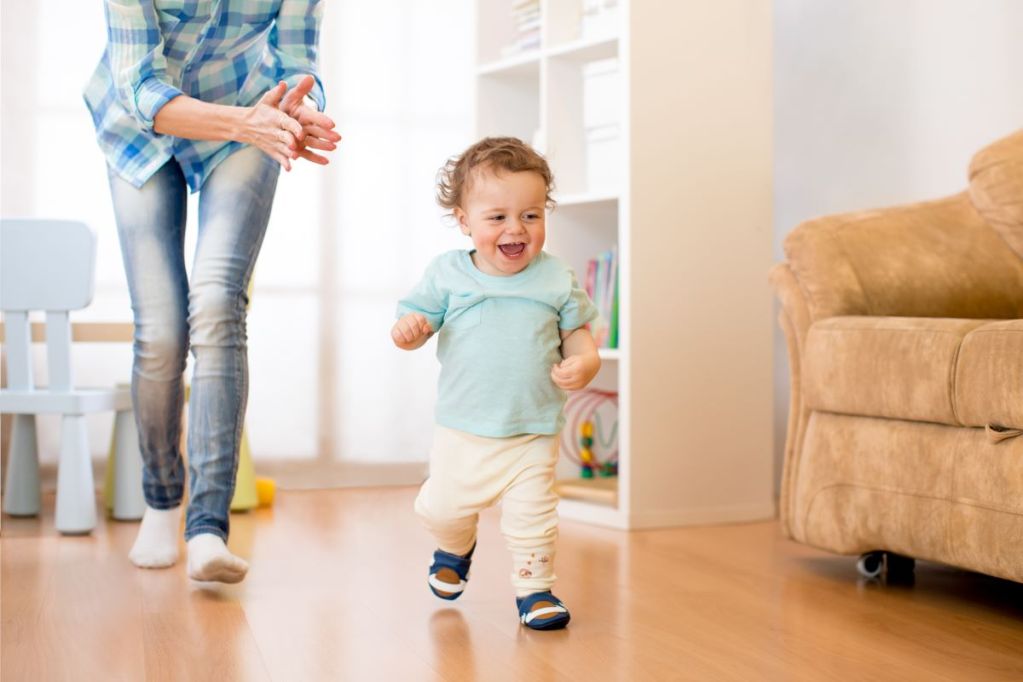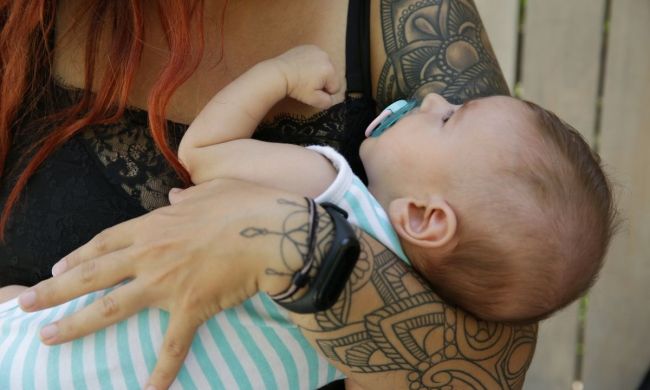
We bribe. We beg. We will set that baby up for those first steps any way we can. But your little one will not start walking before they’re ready. When is that? When do babies start walking? It’s the next major milestone after crawling, and parents cannot wait to capture the moment their baby discovers they have two feet that will take them anywhere. If you have a baby who’s about to become a walker, this is what you should expect before the first step is attempted.
Look for clues to tell when your baby will start walking

First things first — there are markers to watch out for to know your baby is about to walk. If you keep an eye on that little human of yours, they give hints as to when they’re ready to start walking. By then, you can obsessively watch them so you don’t miss a step.
Your baby will hit these milestones when it’s almost time to walk
- Can pull themselves up from sitting to standing
- Can continue to stand by themselves without help
- Can walk while holding on to something
One day, you’ll look over and see a tiny head sticking up behind the arm of the couch. Or, you’ll hear a little thud from across the room, signaling your baby has let go of the couch and fell back to their bottom. Your baby pulling themselves up to their feet is a great indication walking is around the corner.
Parents who want to see if their child is ready should do the stand test. Pluck baby in the middle of a room on their feet, let go, and see if they stay standing. Once they find their balance, the first steps may follow.
Your baby will start to piece things together, and that’s when the fun happens. You’ll see your little one pull themselves up along a piece of furniture and then figure out they can walk the length of it if they hold on tight. It’s the cutest thing.
When babies start walking

You know the signs — but when does walking start? Babies could walk as early as 9 months old. Please keep in mind this doesn’t mean all babies will walk by 9 months old or that something is wrong with your child if they aren’t walking by then.
The average age for walking is 1 year old
Most babies start walking by the 1-year-old mark. If you’re the kind of parent who likes timelines, pencil in walking for their first birthday. Some babies walk later, and it might not be until they are 18 months old before they start following you from room to room. But, parents, be ready for your child to start walking by the time they are 1 year old. It will happen faster than you think.
How to help those first steps happen

Practice makes perfect, and repetition and routine help when developing a new skill. While you can’t force your child to walk, there are things to do to get them as ready as possible to move things along.
Walk with them
Grab those pudgy hands and walk with your child. It’s a great bonding experience, and your child will learn by watching you.
Skip the baby walker
Those tiny tripping hazards do more harm than good. We all want a moment to finish the dishes or pretend we’re going to switch the laundry out, but skip plopping your baby in a walker. Your shins will also thank you for not having one around the house.
Don’t go crazy buying shoes
Until your child is walking consistently and walking outside, you don’t need to purchase shoes of every kind and color. It’s better to learn how to walk barefoot. Even socks may be too slippery and could mess with their balance. Free the feet.
Get the house ready
If you haven’t baby-proofed things yet, get that done. Your baby will feel discouraged if you constantly tell them no or pick them up and move them all the time, even to keep them safe. Give them plenty of room to flex their leg muscles and see where they wind up.
Don’t rush your baby to start walking

The second they figure it out and are on the go, you’ll never sit down again. There is no need to hurry things along. Enjoy the process.
When to see a doctor
You don’t want to speed through this stage, but you do want to know if your child might be falling behind. If your kiddo is around 12 months old and not showing signs of walking, it’s time to talk to the pediatrician. When your little one is 18 months old and isn’t walking behind you from room to room, bring it up with the doctor. While this still doesn’t mean something is wrong, there are tests a doctor may want to sort out to make sure there aren’t growth or developmental issues.
Learning how to walk is a tough job, but one your child will love to get the hang of it. For parents, when do babies start walking is a question that pops into their head as early as the first rollover. Check for those sharp edges, put away the breakables, and get ready to applaud the first steps.



